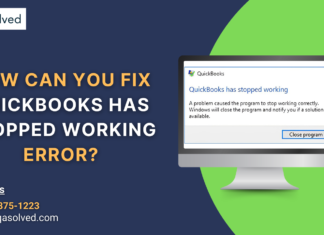In today’s digital age, cyber attacks have become a common occurrence, affecting individuals, small businesses, and large corporations alike. Cybersecurity is no longer an option but a necessity for protecting sensitive information and maintaining the integrity of your online presence. In this blog, we will discuss some of the top strategies to prevent cyber attacks.
- Implement Strong Passwords and Multi-Factor Authentication
One of the most effective ways to prevent cyber attacks is to use strong passwords and multi-factor authentication. A strong password should be at least 12 characters long and include a combination of upper and lower case letters, numbers, and symbols. Avoid using easily guessable passwords such as your name, birth date, or common words. Also, never reuse passwords across different accounts.
Multi-factor authentication is an additional layer of security that requires users to provide two or more forms of authentication to access their accounts. This could include a password and a verification code sent to your phone or email. By implementing multi-factor authentication, you can significantly reduce the risk of unauthorized access to your accounts. Learn more Ethical Hacking Course in Pune
- Keep Software Up-to-Date
Hackers often target vulnerabilities in outdated software to gain access to your devices or accounts. Keeping your software up-to-date, including operating systems, applications, and antivirus software, can help prevent cyber attacks. Software updates often include security patches that fix known vulnerabilities, making it much harder for hackers to exploit them. Visit Ethical Hacking Classes in Pune.
- Be Careful with Email and Attachments
Email is one of the most common methods used by cybercriminals to launch attacks. Always be cautious when opening emails from unknown senders or suspicious emails that ask for personal information or include attachments or links. Do not click on links or download attachments from emails that seem suspicious, and always verify the sender’s email address before providing any personal information.
You may read- Related blog
- Use a Virtual Private Network (VPN)
A Virtual Private Network (VPN) encrypts your internet traffic and hides your IP address, making it difficult for hackers to track your online activities. VPNs can be especially useful when using public Wi-Fi, as they can prevent hackers from intercepting your internet traffic and stealing sensitive information.
- Educate Yourself and Your Employees
Education is key when it comes to preventing cyber attacks. It’s essential to stay up-to-date with the latest cybersecurity threats and best practices. You can also provide cybersecurity training for your employees to help them understand the risks and how to prevent cyber attacks.
- Backup Your Data Regularly
Data backups can be a lifesaver in the event of a cyber attack or a hardware failure. Make sure to regularly back up all important data and store it in a secure location. This could be an external hard drive, cloud storage, or a dedicated backup service.
- Monitor Your Accounts and Credit Reports
Regularly monitoring your accounts and credit reports can help you detect any suspicious activity early on. Set up alerts for any unusual account activity, such as transactions from unfamiliar locations, and check your credit report regularly to ensure that there are no unauthorized accounts or credit applications in your name.
Conclusion
Cyber attacks can have serious consequences, including financial loss, data theft, and damage to your online reputation. By implementing the strategies outlined in this blog, you can significantly reduce your risk of falling victim to a cyber attack. Remember to keep your software up-to-date, use strong passwords and multi-factor authentication, be careful with email and attachments, use a VPN, educate yourself and your employees, backup your data regularly, and monitor your accounts and credit reports. Stay vigilant and stay safe!





